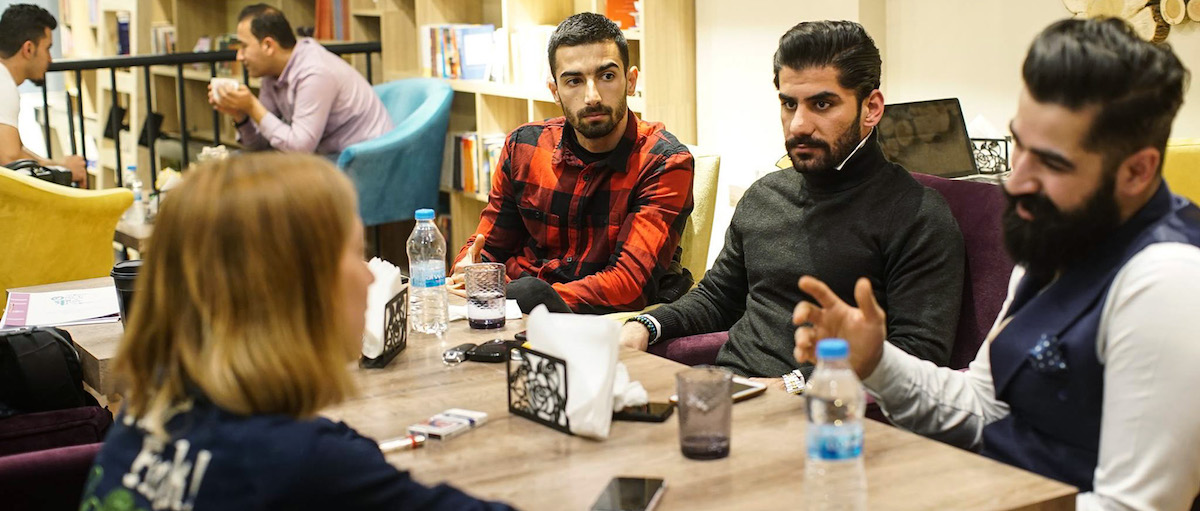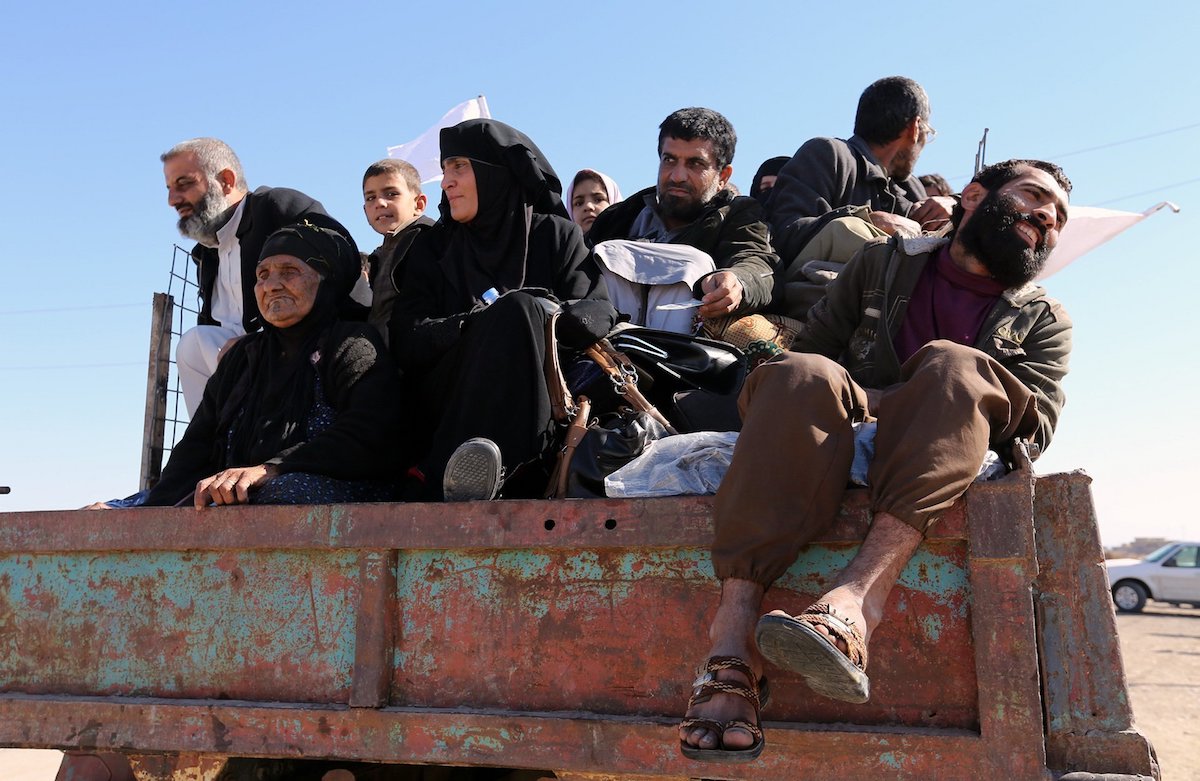Gentlemen vs Islamic State - How Iraqi Kurds change world’s perception of Iraq
The text, photos and video are by JAMnews’s partner, Ukrainian Hromadske TV

Bazar, a district at the heart of the Iraqi Kurdistan’s capital city of Erbil, is a man’s world all right: all the goods there at the stalls are for men, the traders are men as are the waiting staff in the cafés and all the customers.
At every turn here, there is a shop selling wheelchairs, and disabled people are many. They are the legacy of the war with the Islamic State that has been raging in neighbouring Mosul for almost three years now.
Erbil was lucky to avoid being seized by the Islamic State militants when they invaded the north of Iraq in June 2014. They stopped just short of the Kurdish border at the time. After hostilities began in October 2016, hordes of refugees crossed over into Kurdistan, fleeing their war-ravaged villages and towns.

Early this year, Erbil saw the birth of something that has since effectively become its symbol of hope and resilience. A group of like-minded Kurdish men teamed up to create “Mr. Erbil” – a community on a mission to tell the world about current fashion trends and culture in Iraqi Kurdistan, to explain to whoever is there to listen that Iraq is a lot more than Isis, civil wars and oil.
We meet the project creators in “Book”, a café located in what is one of the least conservative areas of the Kurdish capital – a neighbourhood on its northern outskirts called Ankawa.
Historically, Ankawa has been home to Christians, which explains why there are dozens of restaurants and shops here that are allowed to sell alcohol, and women who have their heads uncovered are not an uncommon sight (unlike elsewhere in Iraq). Also, there are many foreigners here – mostly journalists, or else employees of international organizations who come to Erbil to keep a close eye on developments in Mosul and other conflict zones.
The founders of Mr. Erbil – Ahmed Nazad Omar Nihad, Goran Pshtivan and Rava Salih – are sitting at a long table on the café’s second floor, the designated smoking area. They smile and do what many in a conservative Muslim society would disapprove of – shake hands with us women, rather than simply say hello from a distance.

Mr. Erbil community members call themselves gentlemen and their project a gentlemen’s club. They each sport an ideally ironed-out shirt combined with a woolen tie, a suit jacket and elegant trousers. With their dark hair slicked back, and beards and moustaches all oiled up, they look every bit as impressive as their photo images on Instagram where about 78,000 have followed them. The gentlemen take turns to puff on a ‘shisha’, a water pipe.
“Please, don’t take photos of us smoking,” Ahmed said and smiled slyly. “We have a rule: smoking is not to be demonstrated openly. Because we are gentlemen, aren’t we?”
University friends bound together through shared tastes in clothes and common values in life, they came up with the idea to create Mr. Erbil a year ago.
“We were all great fans of Pitti Uomo, the Italian fashion organization that runs grand menswear fairs and promotes dandyism,” Ahmed said. “We saw there were many young men in the city whose style in clothes were very similar to ours. Why, we thought, we could do something like this in Kurdistan. And so the gentlemen movement sprang to life.”
Later, they set up Rishn, a company manufacturing beard grooming products, and commissioned local factories to produce woolen ties.
“We try to help our own Kurdish producers,” Ahmed said. “People tend to think that European companies produce better clothes than local companies, and we want to prove this is not so. It’s not a business for us yet. It’s more like a hobby that we want to turn into a business. Every one of us gentlemen has a job, and it is in our free time, mostly in the evenings, that we tend to our project. I hope that one day we’ll start producing world-class clothes and accessories for men.”
Mr. Erbil also runs an initiative called “Women Inspiration Day”.
“We support women,” Omar said. “Every Thursday we take to Instagram to publish a story of some or other woman who’s done something important in Kurdistan. Our help is small, but it matters a lot to them.”

The Mr. Erbil gentlemen got their first taste of international fame in January, when BBC, GQ, Elle and other acclaimed media wrote about them. However, locals were wary.
“They said we were Isis supporters,” Ahmed laughed. “This must be because we have long beards like radical Islamists’. But gradually they started to understand that it was about fashion, not politics. We have nothing to do with Isis.”
Mr. Erbil is apolitical and does not favour one religious or ethnic group over another. The club has Muslims, Yazidis, Jews, and Christians among its members.
Still, it cannot ignore the political backdrop.
“The war is raging very close to us,” Ahmed said. “When we first started out, the country was in deep economic crisis, and there was a lot of depression and resentment in the society. Now we have the Islamic State monsters right on our doorstep. But it all doesn’t mean we must give up on a normal life. There are people who go to fight Isis, but there should also be someone who stays at home to try and preserve the normalcy for future generations. If everyone goes to war, who will take care of the children and their education? We are here to try to give a positive impulse to the society.”
“Fashion is no way to stop the war or change the world, but at least it can send a message to the outside world that Iraq is not about war and Isis, that there is a culture to cherish and preserve” Ahmed said.
“Fashion is our means of giving hope and energy to the people.”




















